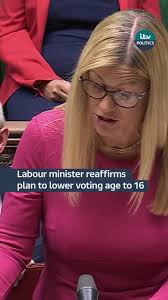Ellie Reeves: A Prominent Voice in UK Politics

Introduction
Ellie Reeves, the Labour Member of Parliament for Lewisham West and Penge, has been a significant figure in UK politics, particularly in discussions surrounding social justice and economic policy. As a rising star in the Labour Party, her initiatives and viewpoints are especially relevant as the country grapples with pressing issues like cost-of-living crises and climate change. Understanding her contributions helps shed light on the changing political landscape of the UK.
Key Contributions and Activities
Since being elected in 2017, Reeves has focused on a range of issues, including women’s rights, healthcare, and education. In recent months, she has been vocal about addressing the rising cost of living, advocating for stronger governmental support for vulnerable families. In a recent speech in Parliament, Reeves highlighted the struggles of low-income households, urging the government to implement policies that provide immediate relief.
Additionally, Reeves has been active in discussions surrounding climate change legislation. She has pushed for more robust measures to meet the UK’s carbon neutrality targets, arguing that economic recovery must align with environmental sustainability. Her involvement in the Environmental Audit Committee has allowed her to play a crucial role in shaping policies that consider both economic and ecological impacts.
Recent Events and Future Outlook
In the general election preceding the 2024 local elections, Reeves is expected to play a pivotal role as Labour aims to regain ground in London. Her grassroots engagement strategy has resonated with many constituents, fostering a sense of connection and urgency around the Labour message. With the economy facing challenges, her ability to articulate clear, actionable policies could be critical in swaying voters.
Looking ahead, observers suggest that Ellie Reeves might emerge as a key figure in Labour’s strategy if they succeed in the upcoming elections. Her platform, which emphasises inclusivity and progressive change, may appeal to a broader electorate as the party seeks to redefine its identity under the leadership of Keir Starmer.
Conclusion
Ellie Reeves continues to be an essential voice in UK politics, representing the concerns of her constituents while advocating for broader societal changes. As political dynamics shift, her role could significantly influence not just local but national discourse. Those interested in the future of UK politics should keep an eye on Reeves’ ongoing initiatives and contributions, as they indicate how Labour may evolve in the coming years.









